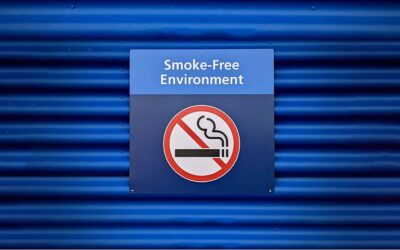When the federal Coronavirus Aid, Relief, and Economic Security Act (CARES Act) took effect on March 27, 2020 it had wide ranging implications for the healthcare system, it appropriated billions of dollars in economic aid, and it included a 120-day eviction moratorium as well as other provisions related to housing.
Years later, the unspent covid funds are being clawed back, the eviction moratorium has long since ended, and many sections of the CARES Act have also expired or ended with the conclusion of the public health emergency declaration. However, for housing providers, one provision remains in effect because it was not given an end date nor tied to the public health emergency declaration. Section 4024(c) of the CARES Act requires a landlord of a “covered dwelling” to provide a minimum of 30 days’ notice when sending the tenant a notice to vacate. Under the CARES Act, “covered dwellings” are housing units occupied by a tenant (with or without a lease) in “covered properties.” Covered properties include:
- Properties with federal rental assistance from a voucher or grant program
- Properties assisted through federally-subsidized housing programs
- Properties with federally backed mortgage loans (FHA-insured loans on 1-4 family properties and loans that have been bought by government agencies such as Fannie Mae, Freddie Mac, or the USDA.)
If you have a tenant receiving a subsidy living in the property, or if the mortgage on the property is federally-backed, it is very likely a “covered property”, requiring at least 30 days’ notice for any notice that demands the tenant to vacate.
In Massachusetts, this is especially important for notices that are typically sent with less than 30 days notice, such as notices for non-payment of rent. If a landlord or property manager wants to send what would usually be 14 days’ notice for non-payment of rent, this must be extended to 30 days’ notice. Though a bit of a misnomer, Massachusetts often refers to a “30-day notice” for a notice to terminate tenancy that are given 30 days or one full rental period in advance, whichever is longer. The CARES Act requirement to provide a minimum of 30 days’ notice is a true 30 days, it does not need to line up with the rental period.
HUD published an interim final rule (IFR), Extension of Time and Required Disclosures for Notification of Nonpayment of rent, which went into effect on November 8, 2021. The IFR also mandates HUD housing providers to give 30 days’ notice to public housing and PBRA tenants prior to eviction for nonpayment of rent. The 30-day notice must include information about local emergency rental assistance programs. Massachusetts General Law Chapter 186, Section 31 also requires that information be provided about rental assistance programs when a notice is sent for non-payment of rent. It requires that a specific form and notice be sent, which can be found here.
Though tenants may not be able to determine whether a property is a “covered property”, the court expects a landlord should know or have access to the documents from which to find out, and requires the landlord to send the appropriate notice.
While this was intended to be a COVID-related protection to give tenants in “covered properties” more time to find rental assistance or legal advice before their landlord starts an eviction, there is no end in sight as Section 4024(c) has no expiration date and there is very little discussion about when to sunset this provision.
If you have questions regarding CARES Act or determining if your property is a “covered property,” please contact Drayton Law at 508-618-7270.
This blog is for informational purposes only. It should not be considered legal advice. All those who read this blog should seek the advice of a professional before taking action based upon any information provided herein.








